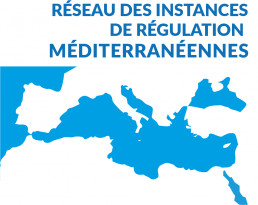The Plenary Assembly of the Mediterranean Network of Regulatory Authorities was held in Granada on the invitation of the Consejo audiovisual de Andalucia (CAA), on 1 and 2 October 2009 under the Presidency of Mr Corrado Calabrò, President of the Autorità per le Garanzie nelle Comunicazioni (AGCOM) of Italy.
Seventeen regulatory authorities were represented and the following organisations took part in the debates as observers: the Network of Francophone Media Regulators (Réseau francophone des régulateurs des médias – REFRAM), the European Platform of Regulatory Authorities (EPRA), the Council of Europe, the European Commission, the African Regulatory Authorities Network (Réseau des Instances africaines de Régulation – RIARC), the Radio and Television Union of Egypt and the Mediterranean Audiovisual Permanent Conference (Conférence permanente de l’audiovisuel méditerranéen – COPEAM). The Broadcasting Council of the Republic of Macedonia was also represented.
At the end of the meeting, the Conseil supérieur de la communication de Tunisie (Tunisia) and the Broadcasting Council of the Republic of Macedonia joined the network under the status of member-observers.
MNRA counts nineteen member authorities as well as two member-observers representing sixteen states of the Mediterranean area.
President Calabrò declared the meeting open by underlining the work accomplished by the network during the 10th meeting of Reggio Calabria thanks to the adoption of the Declaration of MNRA on audiovisual content regulation and its recognition by the euro-Mediterranean parties during the conference of COPEAM in Cairo on the 19th of April 2009. Nurtured by European institutions, the Declaration of Reggio also received the support of the Permanent Committee of the Transfrontier Television of the Council of Europe.
The President reminded that the operations of the Mediterranean Network are based on the principle of multicultural diversity as well as the respect of national cultures and are in line with the convention of UNESCO on the protection and promotion of the diversity of cultural expression as well as the White Paper on intercultural dialogue adopted by the Council of Europe in June 2008.
The first day was devoted to the presentations and exchanges on two current issues for the audiovisual regulation in the Mediterranean space: the protection of minors in the context of violence in the media and baby TV (1st session) and the diversity in multicultural societies (2nd session).
During the first session, Lebanon, Portugal, France and Italy made their presentations. The subject on the protection of minors and the fight against violence in the media captured all the attention of the participants who, in order to put into full effect the MNRA Declaration of on audiovisual content regulation, adopted a Declaration of intention relative to the protection of young publics and the fight against violence in the media:
«The member authorities are preoccupied about the complexity of the regulation pertained in the multiplication of audiovisual offers which are linked to the spread of digital technologies, the insufficient supervision of satellite diffusion as well as the emergence of channels intended for babies.
Amongst the principal measures previewed figured:
- the generalisation of signalisation during the diffusion of programmes intended for young publics;
- the systematic information of parents on the dangers of television for children under the age of 3 years old and notably for TV channels intended for them;
- the reinforcement of cooperation between regulatory authorities notably by the establishment of a common list of experts in the protection of children and by the creation of a training workshop for persons responsible for the protection of minors in a member country of the Network;
- the launch of a Mediterranean alliance for the education of media in order to better inform and sensitise parents, educators, teachers and children ».The second session on the diversity in multicultural societies was the object of the presentations of Catalonia, Morocco, Turkey and Andalusia. The participants underlined the challenges for the regulators in terms of the magnitude of the wealth of Mediterranean societies and as an instrument of social cohesion, integration, dialogue, recognition and mutual respect.They also saluted the initiative taken by the governments of Spain and Turkey in contributing in favour of the Alliance of Civilisations which aims to promote intercultural dialogue. The second day was firstly devoted to the presentation of the activities of COPEAM (Conférence permanente de l’audiovisuel méditerranéen) and the final resolution addressed to the Euro-Mediterranean Chiefs of State and governments which was adopted during the General Assembly of Cairo the 19th of April 2009 in order to support the development of a harmonised regulatory framework based on the MNRA Declaration on audiovisual content regulation.In the second part of the morning, discussions focused on the Life of the Network. A decisive stage for the governance of the network was achieved with the adoption of the Charter amendments concerning the operation of the Network and specifically the procedure of adhesion. The creation of the member-observer status will permit the Network to open the way for adhesion to new institutions of the Mediterranean area that are interested to join in a multilateral framework while respecting their national specificities. During the closing ceremony, the presidency of the Network was confided to Mr Juan Montabes Pereira, president of the Consejo audiovisual de Andalucia. The vice presidency of the Network will be assured by the Radio and Television Supreme Council (RTÜK), presided by Mr Davut Dursun. The next annual meeting of the Network will take place in 2010 in Turkey on the invitation of RTÜK.
The representative of COPEAM then addressed to the members of the Network a message from the president of COPEAM which called for an enhanced cooperation between the two organisations for a regulated and coordinated Mediterranean audiovisual space.
